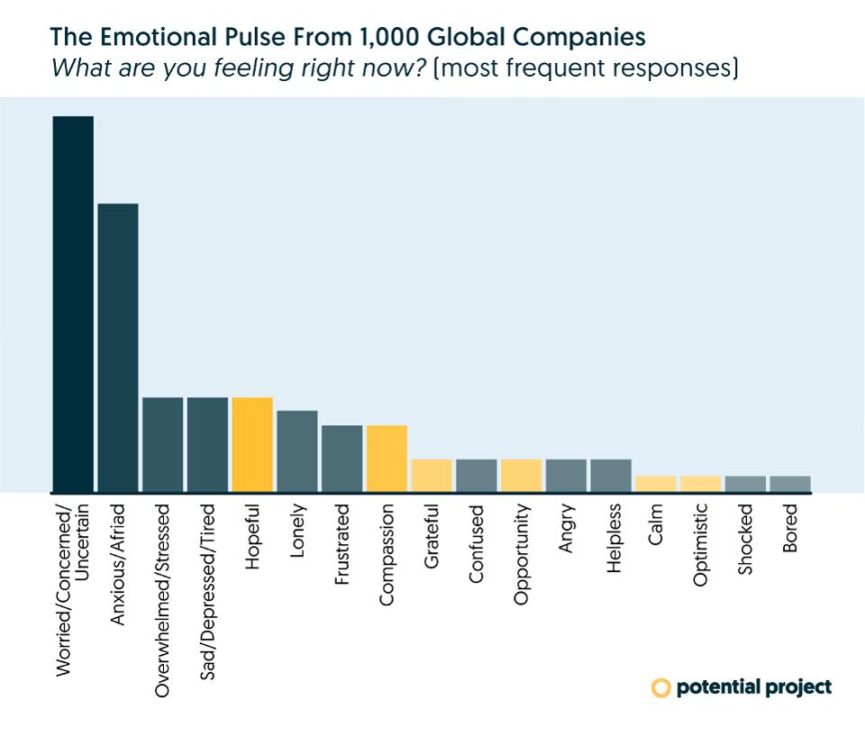Experts are raising the flag to warn that the COVID-19 pandemic has spawned a mental health crisis which could last for months and years.
The promising news is that there are immediate and impactful actions that businesses and leaders can take to make a difference – mindfulness being one of them.
By Rasmus Hougaard for Forbes
Illustration: Shutterstock
The Looming Second Crisis
Experts are raising the flag to warn that the COVID-19 pandemic has spawned a mental health crisis which could last for months and years. The measures we have been taking to control the virus – isolation, shutdowns, business closures, restricted access – have brewed a dangerous cocktail of anxiety, loneliness, grief and deep uncertainty. Given the amount of time all of us spend at work, it is paramount that businesses are mindful of and prepared for this second crisis. The promising news is that there are immediate and impactful actions that businesses and leaders can take to make a difference.
Potential Project observed the early smoke signals of this new crisis back in March. Over the course of twenty online webinars, we took the emotional pulse of approximately 5,000 employees and leaders from 1,000 global companies. We asked a simple, yet critical question: “What are you feeling right now?” Two emotions accounted for 50% of the total answers – worry and anxiety. In general, negative emotions accounted for a whopping 81% of the responses and positive emotions only 19%. The root causes of that negativity? Isolation, loneliness, uncertain financial futures, and fear of their personal and loved ones’ well-being.

It would be tempting to assume that once countries fully reopen and businesses are back to work that all will start to return to normal, including our balanced mental states. However, studies from other global recessions suggest that there will likely be a long tail to the macro and mental recovery.
The good news is that actions taken now can speed up and improve our mental bounce backs.
Individuals are working to help themselves, but companies play a key role



